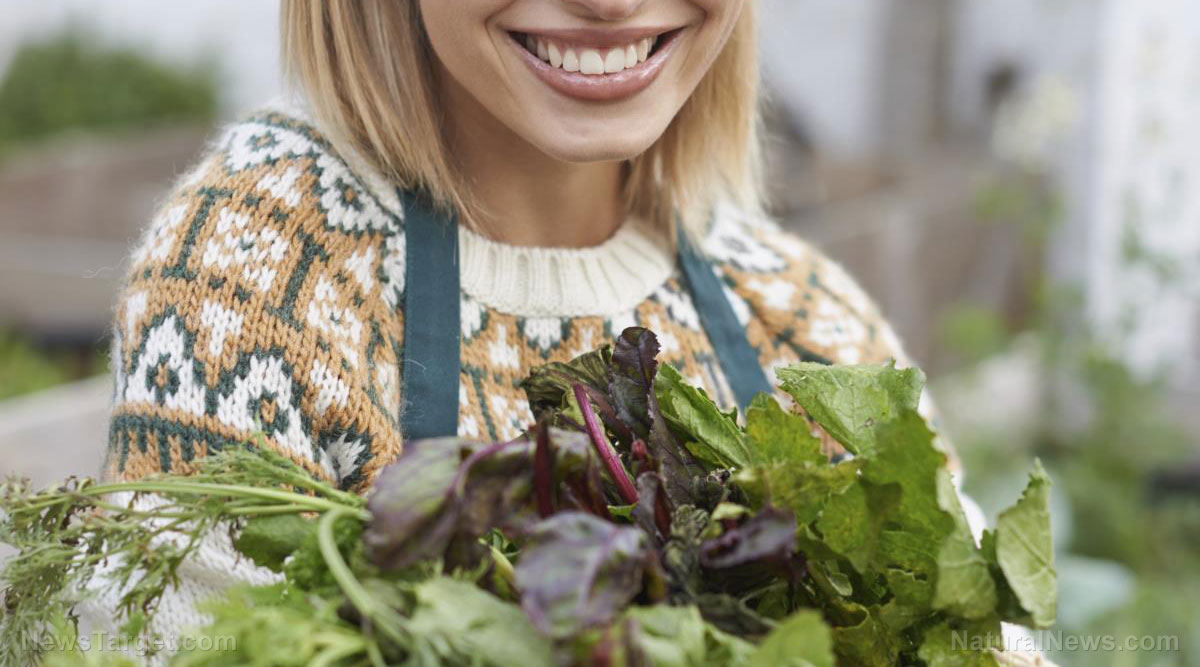On to greener pastures! How horticulture improves mental health
11/05/2017 / By Zoey Sky

While some people swear by the calming effects of a stroll through the park, others practice horticulture to improve their well-being.
Home gardening is an endeavor that provides many benefits such as self-sufficiency. Aside from giving you access to non-GMO food, gardening can even be an outlet that lets you meditate and manage mild to medium mental health disorders. (Related: Gardening and volunteering boosts mental health, relieving stress, anxiety and depression.)
Adam Griffin, a senior occupational therapist at Camali Clinic, a UAE-based center for child and adolescent mental health, said, “The benefits of gardening really are prodigious.Not only can the exertions involved in digging, weeding, planting and pruning help your physical health, but they can also have a very positive impact on your mental health.”
Listed below are 10 of the physical, psychological, and social triggers of what is now known as ecotherapy or horticulture therapy, which can benefit stressed or learning-incapacitated individuals by letting them be at one with nature.
- Attention restoration – Developed by psychology professors Rachel and Stephen Kaplan, attention restoration theory posits that individuals have two types of attention: directed attention and fascination. The former is “limited and can be overloaded by stress, causing mental fatigue,” and the latter is “used to restore mental order.” Fascination is dominant in gardens, which are natural environments that have restorative qualities which affect “concentration levels, memory, and problem-solving abilities.”
- A chance to vent anger and aggression – While nature often exudes a feeling of calm and beauty, it has its darker side as well. Gardening will give you a safe space to vent through chopping, hacking, and weeding, especially when you want to vent “anger or frustration in a controlled environment.”
- Connecting with other living things — Gardening can help people see that they are a part of nature, and this feeling of oneness can be a powerful antidepressant.
- Fostering a sense of responsibility – Children with learning difficulties or individuals with high levels of anxiety often have low self-esteem, but gardening can also be cathartic and help boost confidence and clarity by giving one a greater sense of control.
- Group therapy – Activities such as communal gardening are very beneficial. They provide a group of people a chance to take part in a meaningful activity together by cooperating and communicating well.
- Increasing happy hormones – Being in an area full of greenery can help decrease cortisol levels, the stress hormone that controls immunity, memory, and moods.
- A judgment-free setting – It can be stressful to deal with all sorts of people at work each day, and a garden is a nice quiet place where you can sort out your thoughts while doing something productive without being judged for everything that you do.
- A rewarding feeling – Home gardening is a rewarding activity, and taking part in it can contribute to your overall mental health.
- Physical benefits – Tending to your garden means you have a regular chance to feel the wind in your hair and the sunshine on your face. It can also give you a chance to exercise and burn some calories.
- Hope “cultivation” — With home gardening, even individuals with mental health disorders can have something new to look forward to each day. Simply planting seeds fosters a feeling of hope that with the right care and attention, one can grow something beautiful.
5 Home gardening tips to improve your mental health
If you already have a home garden, here are some gardening tips to improve your well-being:

- Create a space where you can sit in your garden – Don’t forget to include a space where you can sit and appreciate the beauty which grew thanks to your hard work.
- Cultivate flowers that attract bees and butterflies – By planting flowers that bees and butterflies like, your garden “will become a hive of activity.”
- Grow something you can serve at the kitchen table – Harvesting produce lets you feel a sense of accomplishment, and sharing the fruits of your labors with your loved ones makes all of your hard work worth it.
- Plant some seeds – By planting seeds instead of transplants, you can see for yourself the growth of something that you helped cultivate.
- Look after some herbs – Having a small garden doesn’t mean you can’t enjoy making things grow. Try to plant some herbs, which can “fill your garden with fragrance and color,” aside from being a “welcome source of food for wildlife.”
Sources include:
Submit a correction >>
Tagged Under:
depression, gardening, healing, home gardening, horticulture, mental health
This article may contain statements that reflect the opinion of the author





















